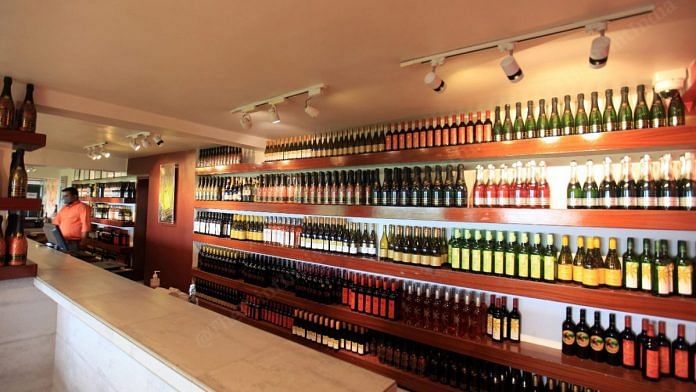New Delhi: It has been almost four months since Prime Minister Narendra Modi announced a nationwide lockdown to curb the spread of the novel coronavirus. In the past few weeks, many of the lockdown restrictions have been lifted.
India’s economic reopening has, however, been a subject of intense debate, with many wondering if it was too soon, given that cases have been increasing steadily. The government still maintains that the country is not in the community transmission phase yet. Meanwhile, the race for a Covid vaccine has led to controversies about sidestepping protocol.
Through all of this politicking over a virus, Covid-19 cases in India are now well beyond the 10 lakh-mark, with more than one third of them active.
For the last few months, ThePrint’s journalists have been travelling across India to bring you accurate on-ground accounts of how this pandemic is really unfolding across India.
This week, ThePrint brings you stories from Nagaland and Maharashtra.
Also read: Agra model stops working, Assam under deluge while Navi Mumbai’s war room manages Covid battle
Nagaland’s paramilitary returnees adding to Covid tally
Until 4 May, when the central government allowed interstate travel, Nagaland had not recorded a single case of Covid. Now, it has more than 900 cases, but not one of them has resulted in death. Authorities are getting tense though, because, while the number of civilians returning to Nagaland is tapering, there is an increase in the number cases with the return of paramilitary personnel after being on leave.
ThePrint’s Angana Chakrabarti and Yimkumla Longkumer have been in Dimapur, Nagaland’s commercial capital. This week, the state witnessed its largest daily spike of 71 cases, most of which are in Dimapur.
“We need to contain this problem. The flow of military and paramilitary forces doesn’t stop because the orders come from the ministry (at the Centre) and we also know the constraints they have,” Dr Vizolie Z. Suokhrie, the principal director of health and family welfare, told ThePrint. He added that this would be a big problem for a small state like Nagaland.
Meanwhile, the state police force has built one of the largest Covid-19 quarantine facilities in all of Northeast India. Built in a special economic zone (SEZ) that already had a number of unused buildings and warehouses, the facility can house more than 1,000 people, and released its last batch of inmates earlier this week.
It is now set to be used as a standalone facility for India Reserve Battalion (IRB) personnel of the state police.
Read more about Nagaland’s battle with Covid here and here.
Nashik wine-makers to hike rates, TV shows get back on set
The lockdown has hit businesses across India, and the wine industry is one of them. ThePrint’s Ananya Bhardwaj visited Nashik, the grape capital of India, which is home to homegrown wine labels like Sula, and found that many local brands are looking at upping their bottle prices to make up for the losses they suffered during the lockdown.
While the majority of the harvest was completed before the lockdown, Arun Morey, director of association of table grape growers, told ThePrint: “The farmers did not benefit from wineries taking their produce as the grapes went for as low as Rs 5 per kg. That does not even cover the basic cost of produce.”
Read more here.
In Mumbai, meanwhile, TV studios have returned to work after more than three months, and while strict rules are in place regarding hygiene — PPE, regular fumigation on set and more — Covid also means certain kinds of scenes can’t be shot anymore.
Jamnadas Majethia, chairman, Indian Film and TV Producers Council, told ThePrint, “The new SOP clearly states that there will be limited people on the sets. Hence, there will be no grand weddings, death sequences, party sequences, sequences that involve hugging or touching … that were an important part of all shows earlier.” Read more here.
As Mumbai continues to grapple with Covid, the city and its satellite towns’ various municipal bodies are racing to outdo each other in a bid to get healthcare workers.
Nurses who earned Rs 10,000-15,000 a month are now being offered double that amount in Kalyan-Dombivli and Ulhasnagar, while in Navi Mumbai, new BAMS (Bachelor of Ayurvedic Medicine and Surgery) doctors are being lured with packages worth Rs 90,000 per month, as opposed to around Rs 50,000 pre-Covid. Read more here.
Also read: Filthy shared toilets in Thane, Covid rising in rural UP and floods in Assam amid pandemic



